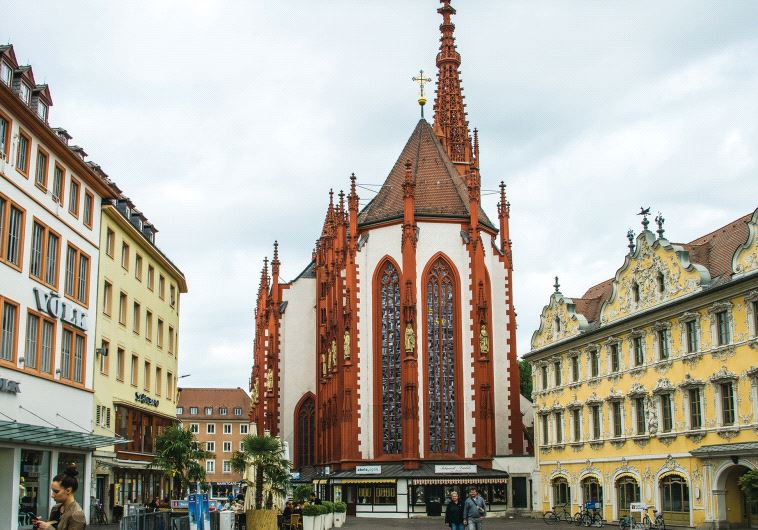In Plain Language: Peace like a river
The Jews of the Rhineland were attacked mercilessly by Crusaders en route to the Holy Land to liberate it from the Muslim infidels.
 The gothic St. Mary’s Chapel in Wurzburg(photo credit: TED MCGRATH/FLICKR/YEDIDYA WEISS)
The gothic St. Mary’s Chapel in Wurzburg(photo credit: TED MCGRATH/FLICKR/YEDIDYA WEISS)